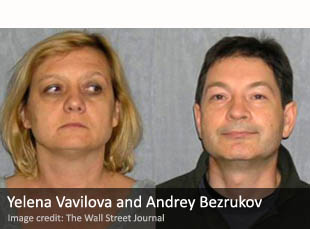Son of Russian spies posing as Canadians gets to keep Canadian citizenship
December 20, 2019 Leave a comment
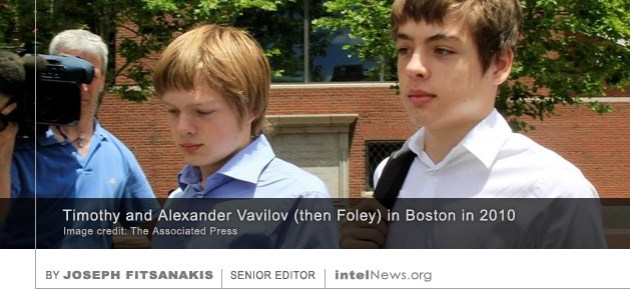 The son of a Russian couple, who fraudulently acquired Canadian citizenship before being arrested for espionage in the United States, has won the right to keep his Canadian citizenship, which was effectively annulled when his parents were found to be Russian spies.
The son of a Russian couple, who fraudulently acquired Canadian citizenship before being arrested for espionage in the United States, has won the right to keep his Canadian citizenship, which was effectively annulled when his parents were found to be Russian spies.
Tim and Alexander Vavilov are the sons of Donald Heathfield and Tracey Foley, a married couple arrested in 2010 under Operation GHOST STORIES —a counterintelligence program run by the US Federal Bureau of Investigation. Following their arrest, their sons, who allegedly grew up thinking their parents were Canadian, were told that their parents were in fact Russian citizens and that their real names were Andrei Bezrukov and Elena Vavilova. Their English-sounding names and Canadian passports had been forged in the late 1980s by the KGB, the Soviet Union’s primary external intelligence agency.
Since their parents’ arrest on espionage charges, the two brothers, who were born in Canada, have been involved in a prolonged legal battle to have their Canadian citizenship reinstated. The latter was rescinded when it became clear that their parents’ Canadian passports were fraudulent. According to the Canadian Citizenship Act, children born in Canada to “employees of a foreign government” are not entitled to Canadian nationality. But the brothers have argued that they were 20 and 16 when their parents were arrested and were unaware of their double identities. It follows, their lawyers have argued, that they cannot be punished for their parents’ crimes.
In June of 2017, Canada’s Federal Court of Appeal overturned the decision of a lower court and ordered the government to reinstate Alexander Vavilov’s Canadian citizenship. But the Canadian government appealed the decision of the Federal Court of Appeal, which sent the case to the Supreme Court of Canada. The government claimed that the Vavilov brothers should be denied Canadian citizenship because their parents were, effectively, secret employees of a foreign government. The two Russian spies may not have been accredited by the Canadian state as foreign employees, it says, but they were in reality “dedicated to serving their home country, except in their case, the employment was carried out clandestinely”.
On Thursday, however, Canada’s Supreme Court sided with Alexander Vavilov’s lawyers and ordered that he can keep his Canadian citizenship. This decision, which has effectively upheld the earlier decision of the Federal Court of Appeal, almost certainly means that Alexander’s brother, Tim, will also have his Canadian citizenship reinstated.
► Author: Joseph Fitsanakis | Date: 20 December 2019 | Permalink
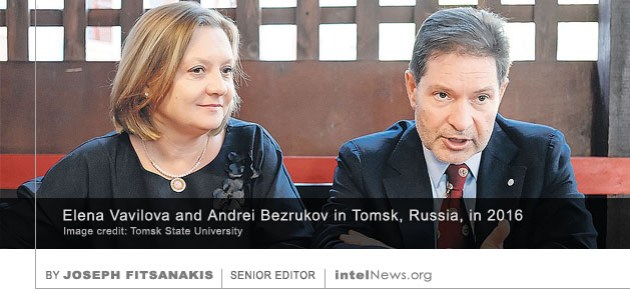 One of the ten Russian deep-cover spies who were arrested in the United States in 2010, and swapped with American- and British-handled spies held by Moscow, has spoken to Western media for the first time. Elena Vavilova was
One of the ten Russian deep-cover spies who were arrested in the United States in 2010, and swapped with American- and British-handled spies held by Moscow, has spoken to Western media for the first time. Elena Vavilova was 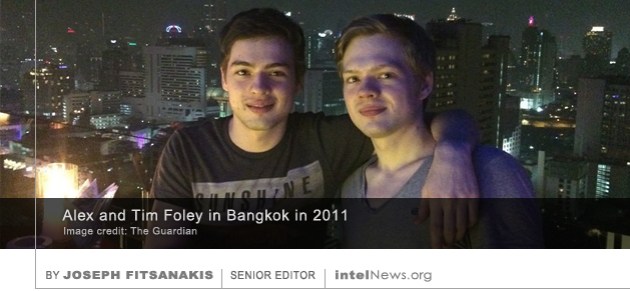 The sons of a Russian couple, who fraudulently acquired Canadian citizenship before being arrested for espionage in the United States, are seeking to reinstate their Canadian citizenship, which was annulled when their parents were found to be Russian spies. Tim and Alex Vavilov are the sons of Donald Heathfield and Tracey Foley, a married couple arrested in 2010 under Operation GHOST STORIES —a counterintelligence program run by the US Federal Bureau of Investigation (FBI). Following their arrest, their sons, who allegedly grew up thinking their parents were Canadian, were told that their parents were in fact Russian citizens and that their real names were Andrei Bezrukov and Elena Vavilova. Their English-sounding names and Canadian passports had been forged in the late 1980s by the KGB, the Soviet Union’s primary external intelligence agency.
The sons of a Russian couple, who fraudulently acquired Canadian citizenship before being arrested for espionage in the United States, are seeking to reinstate their Canadian citizenship, which was annulled when their parents were found to be Russian spies. Tim and Alex Vavilov are the sons of Donald Heathfield and Tracey Foley, a married couple arrested in 2010 under Operation GHOST STORIES —a counterintelligence program run by the US Federal Bureau of Investigation (FBI). Following their arrest, their sons, who allegedly grew up thinking their parents were Canadian, were told that their parents were in fact Russian citizens and that their real names were Andrei Bezrukov and Elena Vavilova. Their English-sounding names and Canadian passports had been forged in the late 1980s by the KGB, the Soviet Union’s primary external intelligence agency.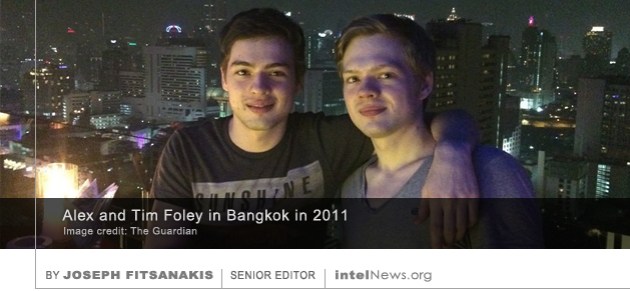 The two sons of a Russian couple, who were among 10 deep-cover spies arrested in the United States, have given an interview about their experience for the first time. Tim and Alex Foley (now Vavilov) are the sons of Donald Heathfield and Tracey Foley, a married couple arrested in 2010 under Operation GHOST STORIES, a counterintelligence program run by the US Federal Bureau of Investigation. Following their arrest, their sons, who had grown up thinking their parents were Canadian, were told that they were in fact Russian citizens and that their real names were Andrei Bezrukov and Elena Vavilova. Their English-sounding names and Canadian passports had been
The two sons of a Russian couple, who were among 10 deep-cover spies arrested in the United States, have given an interview about their experience for the first time. Tim and Alex Foley (now Vavilov) are the sons of Donald Heathfield and Tracey Foley, a married couple arrested in 2010 under Operation GHOST STORIES, a counterintelligence program run by the US Federal Bureau of Investigation. Following their arrest, their sons, who had grown up thinking their parents were Canadian, were told that they were in fact Russian citizens and that their real names were Andrei Bezrukov and Elena Vavilova. Their English-sounding names and Canadian passports had been 